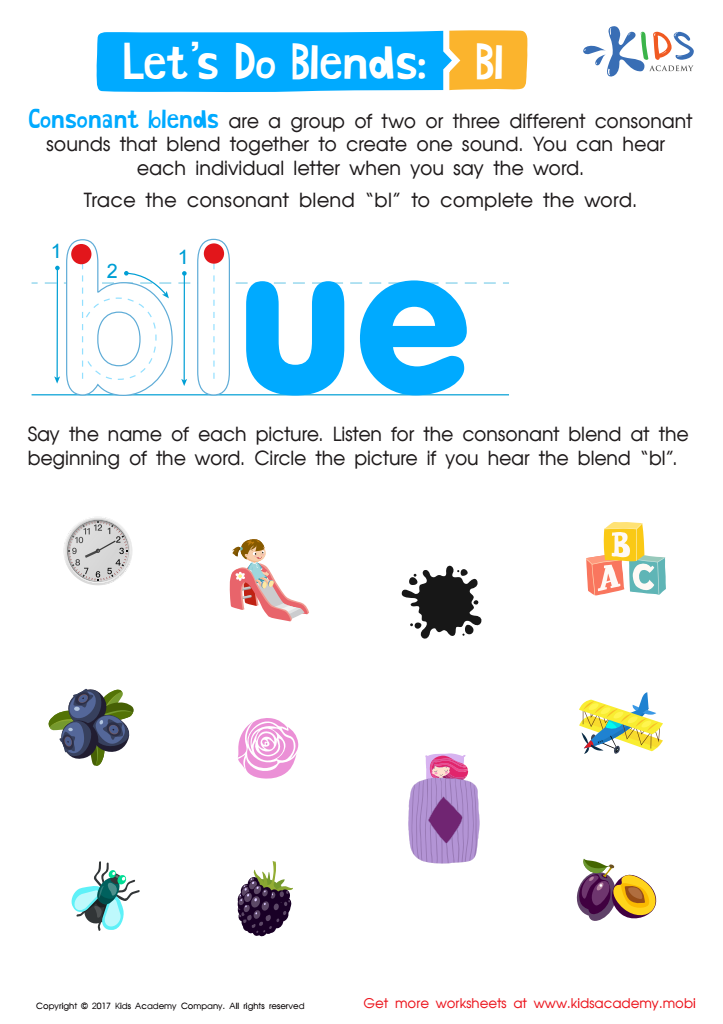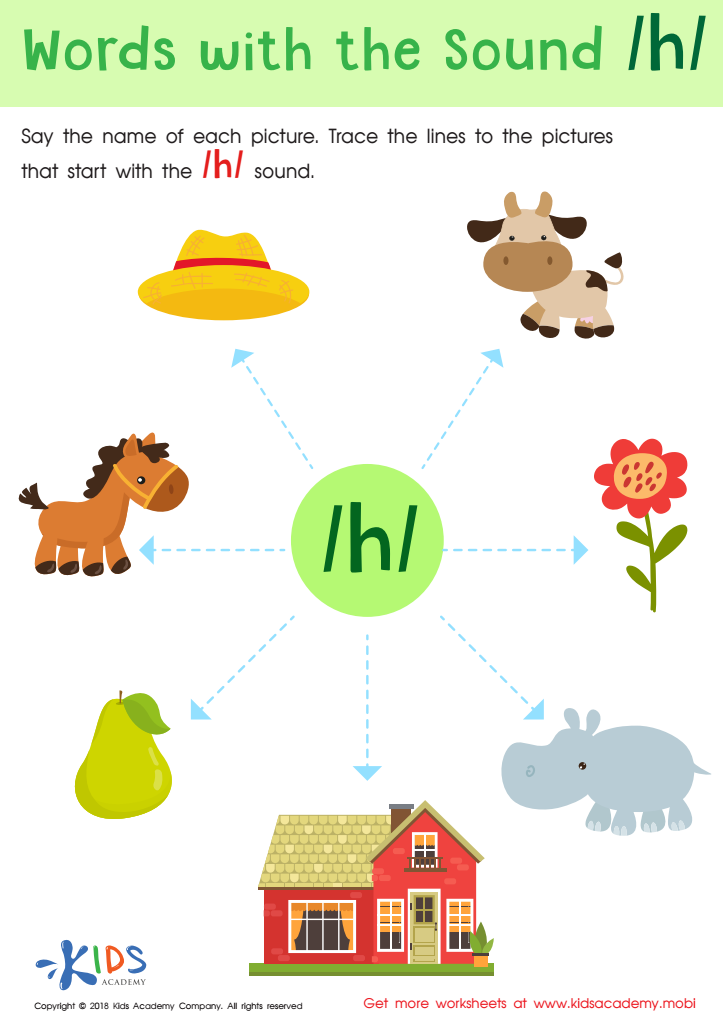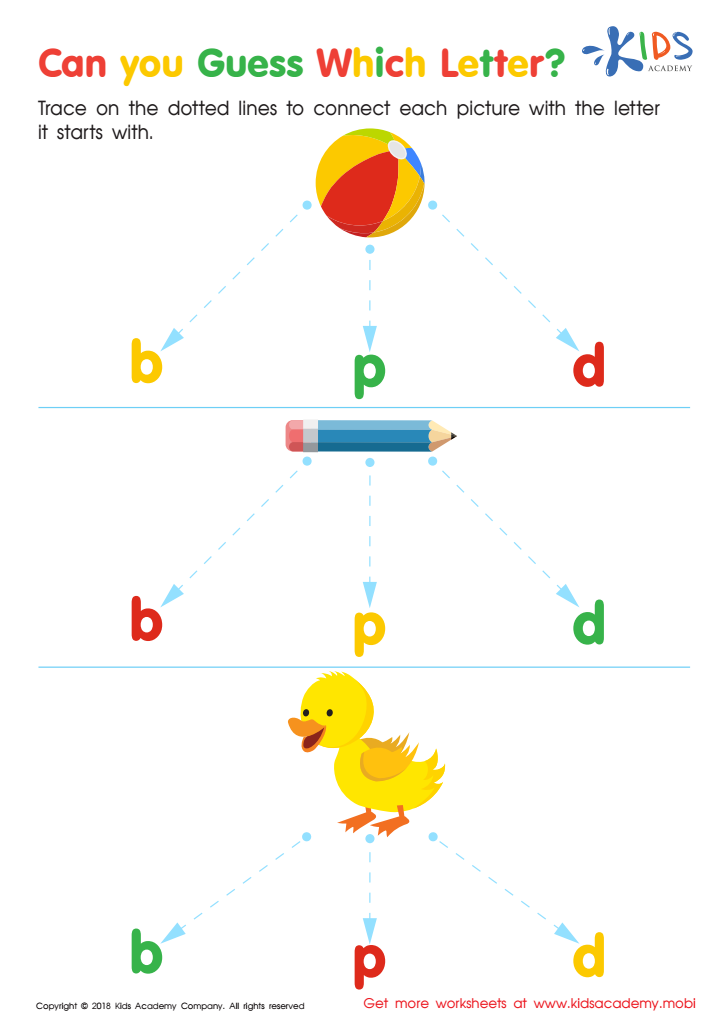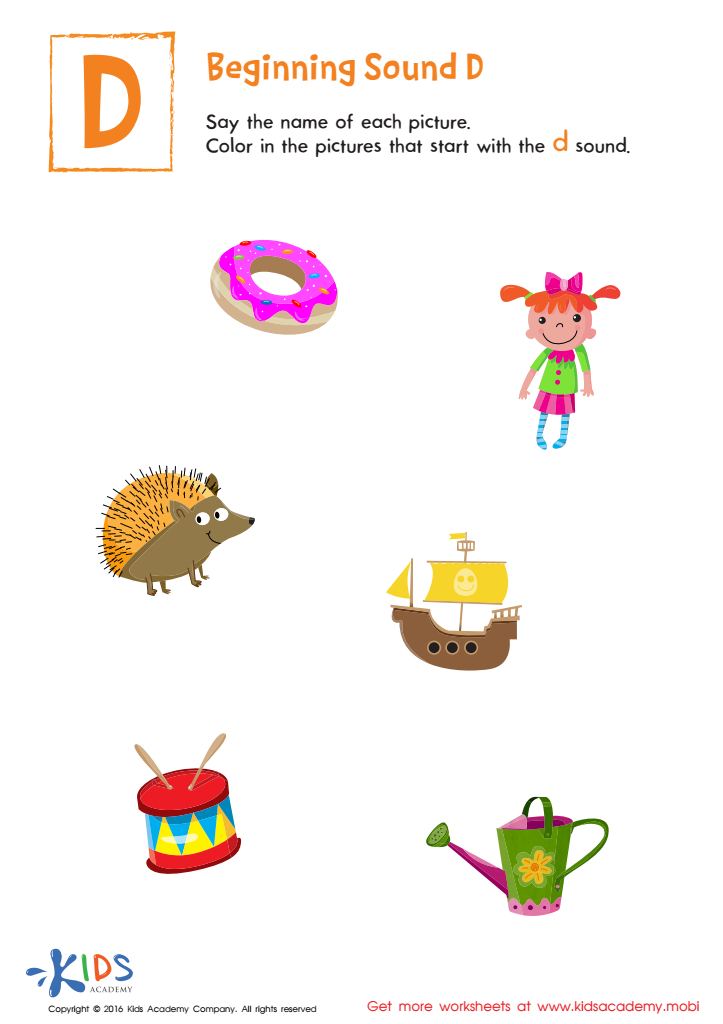Vocabulary expansion Normal Beginning Sounds Worksheets for Ages 5-6
5 filtered results
-
From - To
Enhance your child's vocabulary with our "Vocabulary Expansion Normal Beginning Sounds Worksheets," designed specifically for ages 5-6. These engaging worksheets focus on introducing and reinforcing beginning sounds essential for early literacy development. Each activity combines fun with learning, helping your child recognize and pronounce words correctly while expanding their vocabulary. Through colorful visuals and interactive exercises, children will associate sounds with letters, promoting phonetic understanding. Ideal for home or classroom use, these worksheets foster a love for reading and boost confidence in young learners. Start your child's journey towards literacy today with our expertly crafted resources!


Beginning Blends: "Bl" Words Worksheet


Words with sound h Reading Worksheet


Can you Guess Which Letter? Worksheet


Words with sound f Reading Worksheet


Beginning Sound D Worksheet
Vocabulary expansion at the ages of 5-6 is crucial for children's overall language development and academic success. As they begin their schooling journey, they enter a critical period where they absorb language skills rapidly. Focusing on Normal Beginning Sounds helps children recognize phonetic patterns and improve their pronunciation, which lays the foundation for reading and writing.
When children are introduced to new vocabulary and sounds, they develop better comprehension skills, allowing them to understand and engage with stories and information. A rich vocabulary enhances their ability to express thoughts and emotions, building their confidence in social interactions and academic settings. Teachers and parents play a pivotal role in facilitating this growth by providing engaging activities that promote learning through games, songs, and S.T.E.A.M. (Science, Technology, Engineering, Arts, and Mathematics) experiences.
Moreover, children who develop strong vocabulary skills are better equipped to grasp complex concepts later in their education, fostering critical thinking and problem-solving abilities. In summary, prioritizing vocabulary expansion focused on beginning sounds sets a solid foundation for successful literacy skills and lifelong learning. Engaging in this process empowers children to thrive both in and out of the classroom.
 Assign to My Students
Assign to My Students















